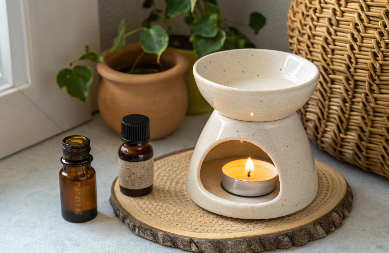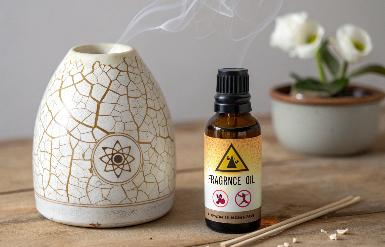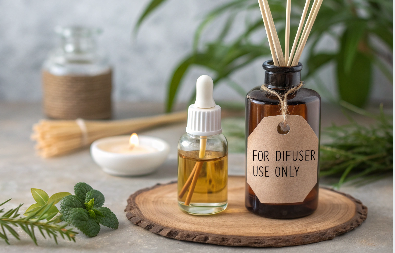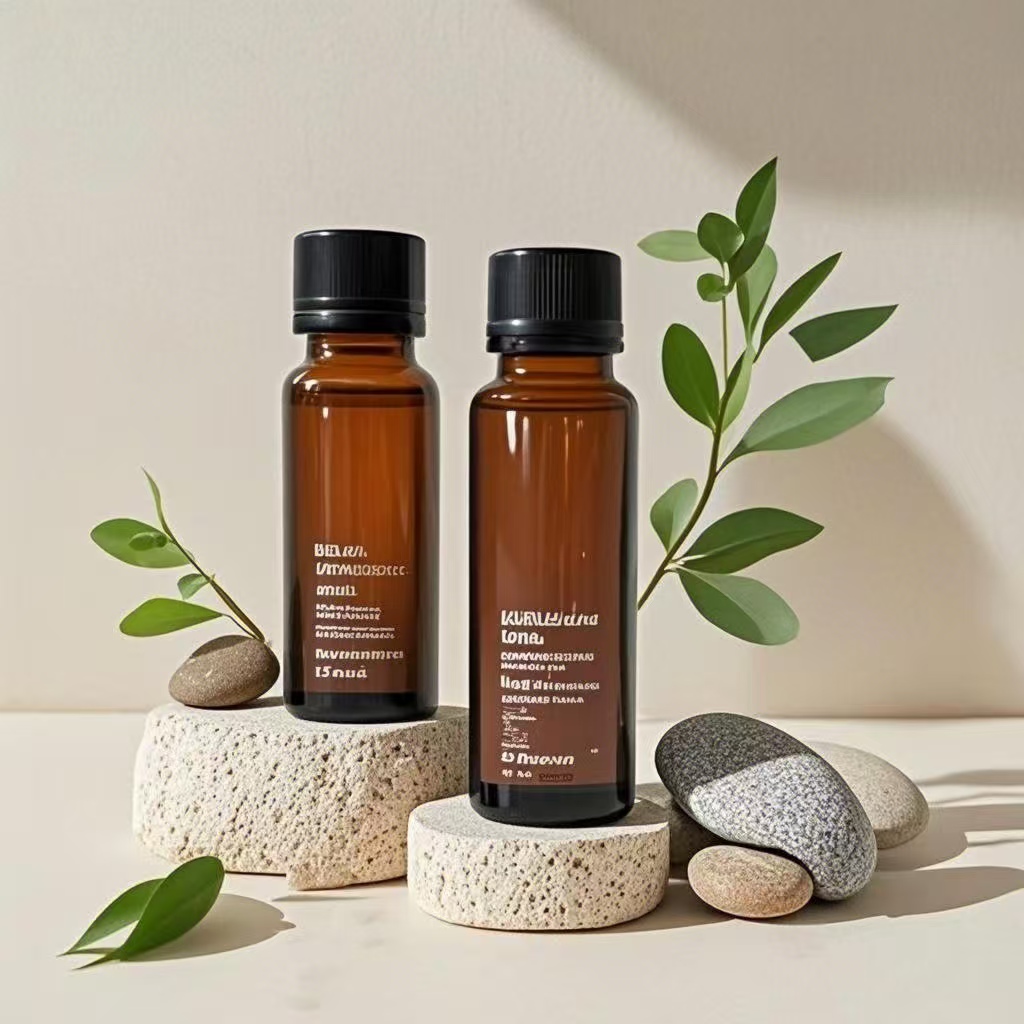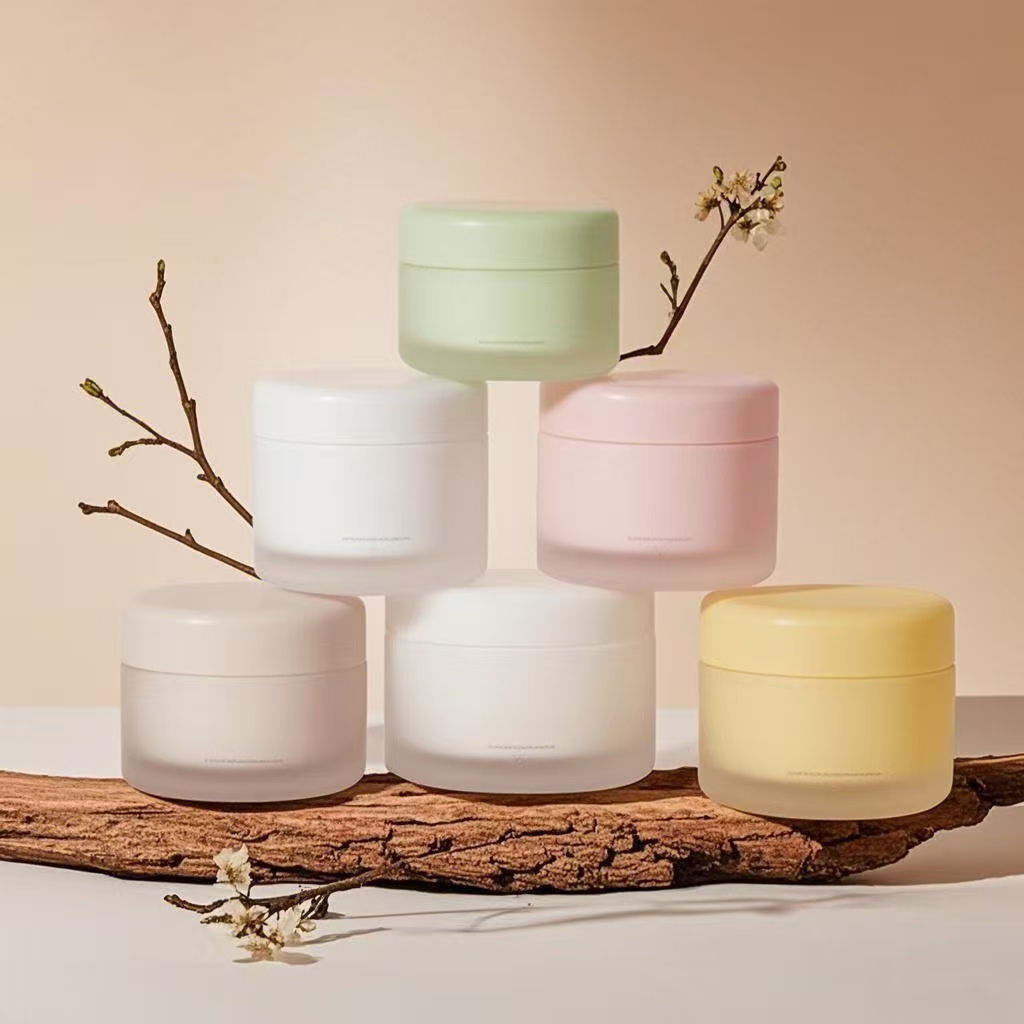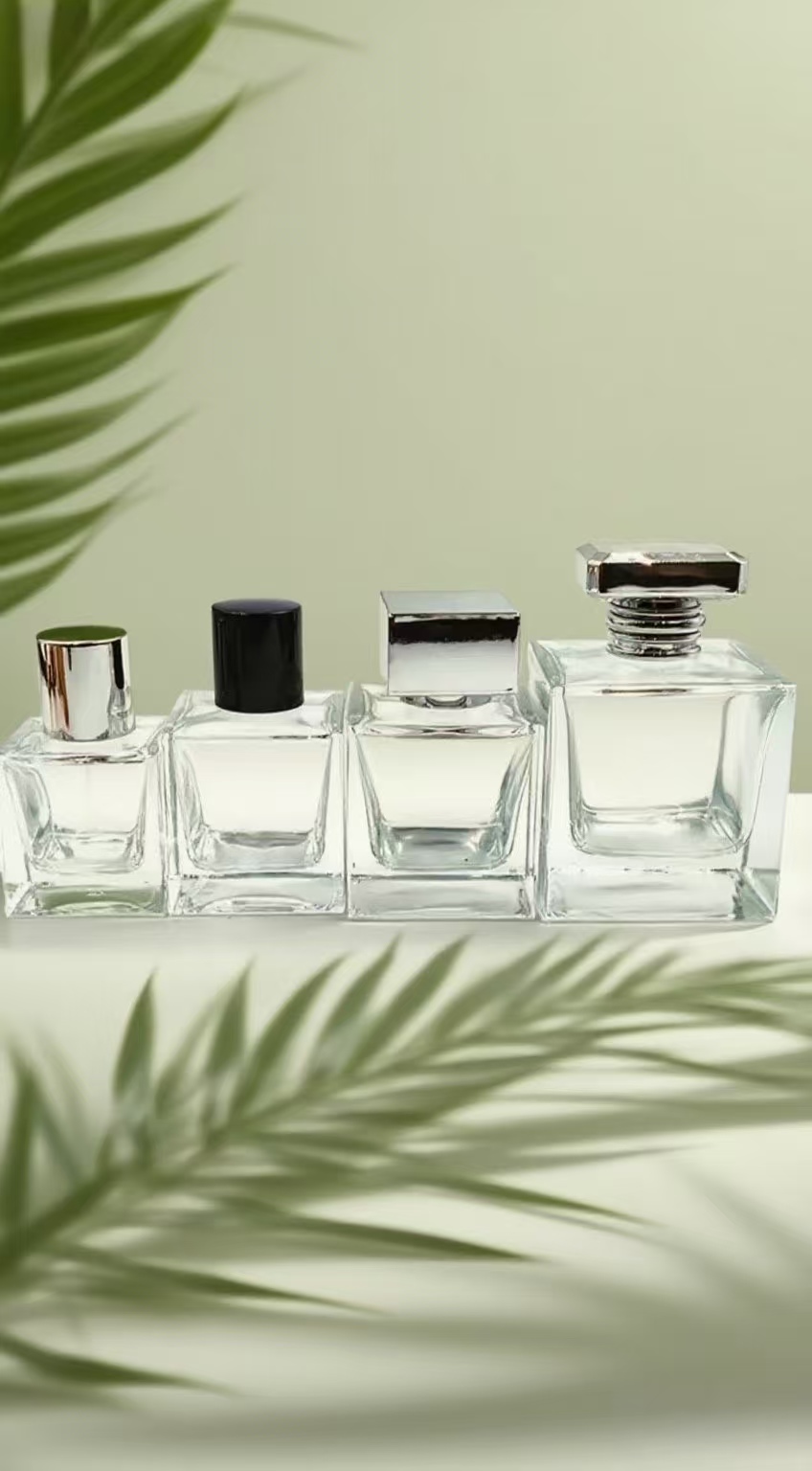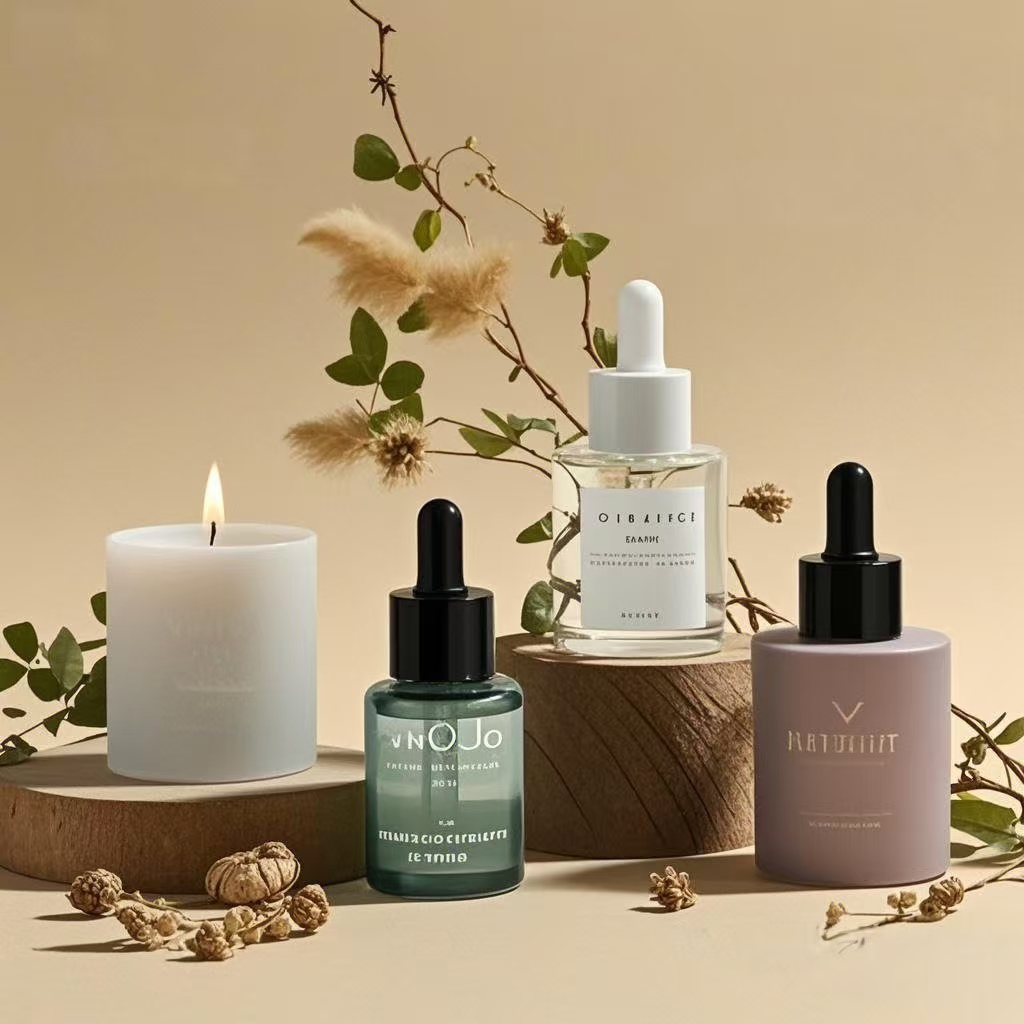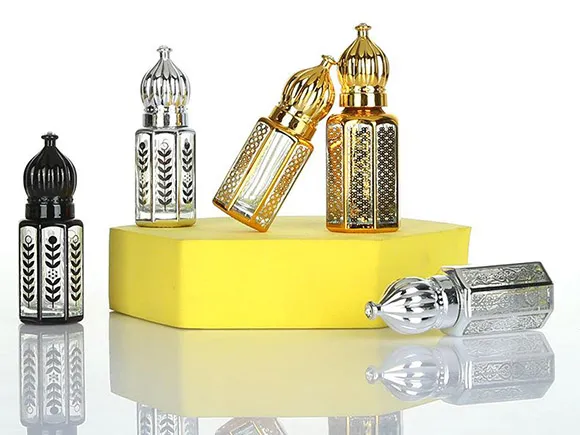They smell good—but can they do harm?
Using fragrance oils in an essential oil diffuser is not recommended because most are synthetic, not designed for diffusion, and may damage the diffuser or affect air quality.
If you’re building a wellness brand, running a spa, or using oils at home, it’s important to know what you’re putting into the air—and your body. Fragrance oils, while often cheaper and more consistent in scent, are chemically different from essential oils. They are not formulated for therapeutic use, and in many cases, they may cause health risks or even damage your equipment.
Is It Safe to Use Fragrance Oil in a Diffuser?
Smells may sell—but that doesn’t mean they’re safe.
No, it is not safe to use fragrance oils in an essential oil diffuser unless the diffuser specifically says it can handle synthetic oils. Most diffusers are designed for pure essential oils only.
Dive Deeper: Why Most Fragrance Oils Don’t Belong in Diffusers
-
Chemical Composition
Fragrance oils are often made from synthetic ingredients, including phthalates, aldehydes, and other compounds not intended for inhalation. -
Diffuser Compatibility
Many fragrance oils are thicker than essential oils and can clog the diffuser’s ultrasonic plate, leading to malfunction. -
Air Quality Concerns
When heated or aerosolized, synthetic compounds can emit volatile organic compounds (VOCs) that may trigger allergies, asthma, or hormonal disruption. -
Lack of Regulation
Fragrance oils are not held to the same purity standards as essential oils. Their ingredients often aren’t disclosed fully, making safety evaluation difficult.
At PauPack, we work with essential oil brands to develop safe, therapeutic-grade diffuser blends packaged in leakproof glass bottles that protect the oils’ integrity. We also label all bottles with clear “For diffuser use only” icons to help consumers avoid accidental misuse.
Are Fragrance Oils Safe to Breathe?
Just because it smells nice doesn’t mean it’s safe for your lungs.
No, fragrance oils are not generally safe to breathe—especially when diffused or heated in closed spaces—because they may contain synthetic chemicals that can irritate the respiratory system.
Dive Deeper: What Happens When You Inhale Synthetic Fragrance?
| Chemical Concern | Common in Fragrance Oils | Risk Factor |
|---|---|---|
| Phthalates | Used to stabilize scent | Hormone disruption, asthma |
| Benzene derivatives | Enhances scent | Carcinogenic in long exposure |
| Linalool acetate (synthetic) | Mimics lavender | Can cause skin and lung irritation |
| Unknown additives | No label requirement | Unpredictable allergic response |
Children, pets, and individuals with respiratory sensitivities are especially at risk. If you're scenting a wellness space or customer-facing environment, using pure essential oils ensures safety and peace of mind.
At PauPack, we help our clients select EO blends that are pet-safe, kid-friendly, and respiratory-conscious, complete with MSDS reports and quality certifications to support claims.
What Essential Oils Should Not Be Used in a Diffuser?
Even natural oils need caution.
Some essential oils—while pure—are not ideal for diffusers due to their high volatility, skin sensitizing effects, or mucous membrane irritants.
Dive Deeper: Oils to Use With Caution or Avoid in Diffusion
| Essential Oil | Risk Type | Why Use Cautiously |
|---|---|---|
| Clove | Respiratory irritant | Strong phenols, overpowering |
| Cinnamon Bark | Mucous membrane sensitivity | May cause coughing |
| Thyme | Irritating in high doses | Antibacterial but intense |
| Wintergreen | Contains methyl salicylate | Toxic in high amounts |
| Oregano | Potent, may cause irritation | Better for topical use |
Use these oils in low concentrations or blend with calming middle/base notes like lavender or sandalwood.
At PauPack, we help formulators apply the 30/50/20 blending rule to create diffuser-safe blends that smell pleasant, act therapeutically, and stay safe for air diffusion.
Is It Bad to Put Perfume in a Diffuser?
Perfume belongs on your wrist—not in your water tank.
Yes, it is bad to put perfume in a diffuser. Perfumes contain alcohol, fixatives, and synthetic fragrances that can clog the diffuser and release harmful chemicals when aerosolized.
Dive Deeper: What Makes Perfume Dangerous in Diffusers
-
Alcohol Content
Can damage plastic components or shorten the life of ultrasonic diffusers. -
Synthetic Compounds
Perfumes are designed for skin—not lungs. Heating or misting them may cause nausea, headaches, or respiratory stress. -
Viscosity Issues
Many perfumes are too thick for a diffuser's atomizing mechanism, leading to buildup or malfunction.
Instead of perfume, consider creating a natural EO-based perfume spray with distilled water and a splash of alcohol. At PauPack, we offer custom-labeled glass fine mist spray bottles designed for safe EO fragrance application—perfect for pulse points, linens, or light room misting.
Conclusion
Using fragrance oils or perfumes in essential oil diffusers is not only bad for your device—it may be harmful to your health. Stick to pure, diffuser-safe essential oils and follow blending best practices to ensure a clean, safe, and effective aromatherapy experience.




